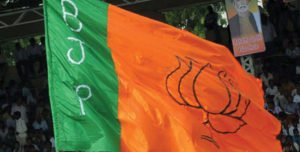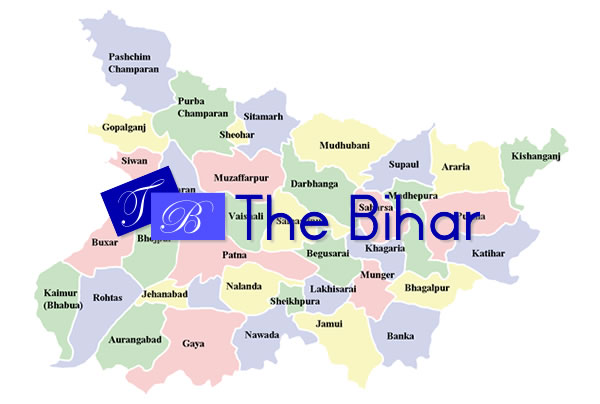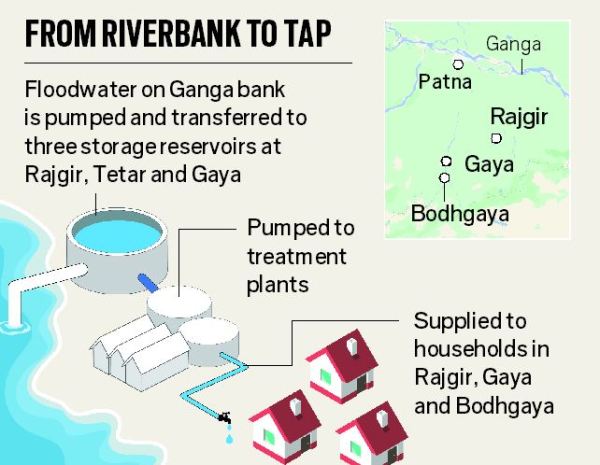Why BJP Ministers in Bihar and Jharkhand Are Visiting Riot, Lynching Accused
6 min read Patna: Ignoring objection by Opposition and slamming by own alliance partners, many Bharatiya Janata Party lawmakers in Bihar and Jharkhand recently reached out to riot and lynching accused in what is considered to be a concerted political effort in the run up to 2019 Lok Sabha elections.
Patna: Ignoring objection by Opposition and slamming by own alliance partners, many Bharatiya Janata Party lawmakers in Bihar and Jharkhand recently reached out to riot and lynching accused in what is considered to be a concerted political effort in the run up to 2019 Lok Sabha elections.
It has threatened BJP’s renewed alliance with Janata Dal (United) in Bihar, which is barely a year old, as its leader and Chief Minister Nitish Kumar publicly disapproved Union Minister Giriraj Singh’s meeting with riot accused in a Nawada jail. The party also condemned open support and assistance to lynching accused by BJP MPs Jayant Sinha and Nishikant Dubey in Hazaribagh and Godda of Jharkhand.
However, unfazed by criticism, BJP leaders shot back saying standing with “innocent” people was not a crime as it was their duty to listen to their voters grievances they represent.
Talking exclusively to News18, Nawada MP and Union Minister Giriraj Singh said, “I met my supporters in jail and their families outside because I share the grief they are subjected to. I have done my work. I don’t care if anybody has a problem. I will not react on their (JDU’s) concern.”
Singh’s statement could leave JD(U) red-faced, but it is unlikely to deter BJP and its effort to cash on caste divisions, which can help it reap rich dividend in the coming elections.
More than 10 districts in Bihar witnessed communal riots during Ramnavami this year and if sporadic cases of religious tensions are included, over 200 cases have been registered since Nitish Kumar ditched ‘mahagathbandhan’ and formed a new government with BJP on July, 28 last year.
In order to understand why BJP leaders are making beeline to see riot or lynching accused, one needs to look at their demographic profile. In most cases, they belong to Other Backward Classes (OBCs), a core constituency of the BJP.
Political Move To Assuage OBCs
News18 spoke to family members of many riot accused in Samastipur, Bhagalpur, Begusarai, Nawada and Arrah. In most cases, a palpable anger against BJP was evident, who accused them of betrayal after cases were filed and the police took action against them.
In Samastipur, just after the riots in March, police arrested 10 people, including Mohan Patwa, who was the flag bearer of Jan Sangh and played a key role in strengthening the roots of BJP in North Bihar, a predominantly RJD bastion.
Patwa belongs to Mali (flower trader) community. Many others also belonged to backward castes. One of Patwa’s family members recalled how no BJP leader came forward when he was framed in case. “It is shocking as BJP is in power both at the center and in the state,” one of the kin said.
Very recently, another nine have been arrested based on CCTV evidence and pressure is mounting on BJP to come forward in their favour.
Vishwa Hindu Parishad worker Kailash and Bajrang Dal district convener Jitendra Pratap Singh, who were sent to jail for fanning communal tension in Nawada, also come from Bania community, considered a staunch supporter of Narendra Modi.
The community was feeling restive as they complaint that many key accused from minority community were shielded by supporters of RJD strongman Rajballabh Yadav and on the other hand their own MP Giriraj Singh, who is projected as pro-Hindutva poster boy, was not listening to them. Many representations were made to Giriraj Singh, which compelled him to visit them in the jail.
Communal riots affected mostly the trading community as shops were ransacked and burnt, causing loss of goods and real estate properties. But Nitish Kumar government’s decision to compensate losses of the minority community further fuelled anger as BJP was seen as a party whose words and deeds do not match.
Sensing disappointment in its rank and file and growing disenchantment among its core vote base, BJP leaders are now trying to reach out to them, much to the agony of Nitish Kumar.
Same applies in Jharkhand also where OBCs, particularly Kurmi and Vaishya, form a large chunk of electorates. That’s why when Ramgarh lynching accused — Rohit Thakur, Kapil Thakur, Raju Kumar, Santosh Singh, Uttam Ram, Sikandar Ram, Vikki Sao and Nityanand Mahto — were sentenced to life imprisonment, local BJP unit upped pressure on Union Minister Jayant Sinha, claiming all had been framed by the police as they were merely present when meat trader Alimuddin Ansari was thrashed on the road.
No Compromise with Nitish on Ideology
When Nitish Kumar said that he would not compromise with communalism, even if it comes at the cost of government, he might be aware of what BJP had in store for him.
Bharatiya Janta Party’s top leadership months ago made it clear to the state unit that renewal of ties with Kumar must not come as a hindrance in expanding party’s base in the state. For this, those is party organisation have been clearly told not to think about their participation in the state government and carry out massive reach out programs focusing on party’s ideology.
The party is hopeful of repeating Uttar Pradesh in Bihar in the near future. For that, it requires consolidation of OBC votes in its favour, which account for around 46% of electorates. The party, riding on Modi wave, was all time hopeful to get their support in 2015 Assembly elections but it didn’t happen.
Party leaders believe aggressive Hindutva agenda can be a binding force for this section which will help countering not only Lalu Yadav’s RJD but alliance partner JD(U).
This is one of the reasons why BJP leaders took on Nitish Kumar’s administration for, what they say, “framing innocents in the riot and lynching cases”.
Giriraj Singh, with tears in his eyes, said, “It is very unfortunate to see that the communal harmony is being maintained by suppressing Hindus. I request the government and the society to let go this kind of perception.”
However, he was not the first to attack Nitish government. When a tea seller and BJP worker Kamlesh Yadav, again an OBC, was beheaded in Darbhanga for naming a Chawk in the name of Narendra Modi earlier in March this year, then also BJP leaders sharply attacked the way administration investigated the case.
Pro Hindutva and anti-Nitish approach was on display, once again, during Bhagalpur riots in March this year, in which Arjit Shashwat, the son of union minister Ashwini Chaube was made an accused.
Focus on Tribal Sarna Votes to Counter Church
Godda BJP MP Nishikant Dubey was the first to reach Bankatti village where two Muslim men were lynched on suspicion of being cattle thieves on June 13.
The police booked four villagers — Munshi Soren, Kameshwar Soren, Kishan Rai and Bhukul Kishku — and sent them in judicial custody.
Ignoring the fact that his own government in the state had ordered strict action in the case, Dubey was quick to term the arrests wrong and accused the police of working under pressure from Babulal Marandi’s Jharkhand Vikas Morcha (JVM), Jharkhand Mukti Morcha (JMM) and Congress.
He announced instant cash assistance of Rs 1 lakh to each of the accused and offered bear all their legal expenses.
Why he did so? Prominent journalist and Padma Shri awardee Balbir Dutt says, “Dubey realised a chance to make inroads into tribal votes. All accused are Santhals, who have been voting for JVM in the area. However, his open support to them can change the poll dynamics.”
The BJP for long has been trying to reach out to tribals through Vanvasi Kalyan Kendra and other outfits, but now the party aims to include them in its Hindutva fold as a large section of nature worshippers, who called themselves Sarna are vulnerable, Dutt reasoned.
That’s why the saffron party has vehemently opposed a separate Sarna Code on the lines of Muslim Personal law. Raghubar Das government also enacted anti-conversion bill last year in order to check the activities of missionaries and made conversion through coercion or allurement a non-bailable offence punishable up to four years of imprisonment.
BJP enjoyed a huge support among tribal population when Jharkhand was carved out from Bihar during Atal Bihari Vajpayee government. The party installed Babulal Marandi as the first Chief Minister, followed by Arjun Munda.
However, it faltered midway as Babulal formed another party and Shibu Soren alias Guruji, protagonist of Jharkhand movement, accused the BJP of depriving Adivasis from their rights.
The incumbent Rahubar Das government’s domicile policy and land acquisition Act has not gone down well among pro tribal groups and parties.
So, the worried BJP is aware of the importance of 26% tribal votes in its quest to ensure maximum seats from Jharkhand in the Lok Sabha elections and retaining its government in the state when it goes to polls next year.
Courtesy: News18


